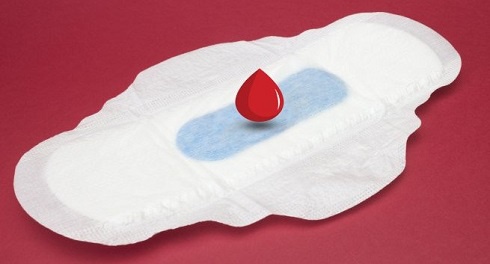And to the ladies who are not so sure of how to clean and keep the place on point, do well to read and make notes because this piece gives you the important guidelines on what to use and how to use it.
The vagina is a self-cleaning organ which has its own natural way of getting rid of any unwanted stuff in there.
When it gets to that time of the month where the egg that was not fertilized is shed, as a woman, it is a necessity that you keep that place clean as much as you can. Most of us go through our periods very secretively and don’t really care to find out if our practices are hygienic or not. Sometimes we may wear the same pad for the entire day. Women in smaller towns and villages still use reusable unhygienic cloth during their cycle. And since periods are seen as unclean in some households, they are not allowed to use detergent to properly wash the soiled cloth.
1.Your sanitation method:

Of late, there are quite a number of ways including the use of sanitary pads, menstrual cups and tampons to stay neat. Choose one brand, whether it’s a tampon or pad, which you feel comfortable with and use for a while to know if it helps your needs. Regularly switching between brands can make you uncomfortable since brands are distinctive as we all are, befit everyone individually. Also, a painkiller on the side is advised for if abdominal pain becomes unbearable.
2. Change regularly:
Period blood – once it leaves the body, gets polluted with the body’s innate organisms. This happens even on days when you experience light flow. Changing your sanitary pad is very necessary because after wearing it for about 6 hours, the pad becomes damp with organisms from your vagina and sweat genitals which can lead to infections such as vaginal infections, pad rash and urinary tract infections. However, there are instances when you have a lesser flow and may not need to change your sanitary napkin.
3. Wash yourself frequently:
During menstruation, the blood usually enters tiny spaces like the skin between the labia and the crust around the opening of the vagina, so excess blood should always be washed away. This tends to beat bad odour from the vagina region which makes it important for you to wash your vagina and labia thoroughly with water before you change your sanitary pad.
4. Avoid using soaps or vaginal hygiene products:
As stated earlier on in this article, the vagina is a self-cleaning but sensitive organ that works in a balance of good and bad bacteria. Washing that sensitive area with scented soap can kill the bacteria and paving way for infections. Always wash the area in a motion from the vagina to the anus. Do not ever wash in the opposite direction because it can cause bacteria from the anus to lodge in the vagina and urethral opening leading to infections. It is advised that the use of soap inside the vagina is not good but can be used on the outer part.
5. Properly discard your used sanitary napkin:
It is of great importance to discard your used pad properly because they are capable of spreading infections. The used pad has a foul smell and that is why you should wrap it well before discarding it to ensure that the smell and infection is contained. But most importantly, do not flush used pad or tampons down the toilet because it can form a blockage and make toilet to back up. And wash your hands well after disposing of your used pad.
Health News of Friday, 27 July 2018
Source: Nanaakua Yeboah

















